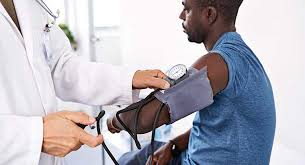Source: express.co.uk
High blood pressure is known as hypertension. The condition fatigues the heart and damages blood vessels. Which sweet treat could you enjoy that lowers your blood pressure reading?
According to research by Harvard, eating a small square of dark chocolate daily can help lower blood pressure with those suffering from hypertension.
Presented to the American Heart Association’s science session on cardiovascular diseases, the study analysed 24 chocolate studies involving 1,106 people.
Findings revealed that chocolate containing at least 50 to 70 percent cocoa lowered blood pressure in all participants, but most notably in those who had high blood pressure.
The authors of the study, including Eric Ding of Harvard Medical School and Brigham and Women’s Hospital, said: “Flavonoids are notably abundant in the cocoa solids of the cocoa bean.”
Science website Live Science state: “Flavonoids are a diverse group of phytonutrients (plant chemicals) found in almost all fruits and vegetables.
“Flavonoids are powerful antioxidants with anti-inflammatory and immune system benefits.”
The Harvard study notes that dark chocolate contains around 46 to 61mg of catechin, a type of flavonoid, in every 100 grams.
This is a much higher percentage of flavonoid than that found in milk chocolate.
The Harvard study said milk chocolate only contains up to 16mg of flavonoid in 100 grams.
Moderation is key in enjoying this dark treat, though, as any added sugar can contribute to weight gain.
Ding recommends people to choose dark chocolate that contains at least 70 percent cocoa.
Those with high blood pressure can do a number of things to reduce their blood pressure readings.
The NHS highly recommends for smokers to stop this unhealthy habit.
Another tip from the NHS is to cut down on the amount of alcohol consumed.
Furthermore, the health body suggests to drink less caffeine, found in tea, coffee and cola.
To encourage lower blood pressure readings – which is vital for your health – it’s best to eat a low-fat, balanced diet that includes lots of fruits and vegetables.
It’s also beneficial to remove any excess salt from your diet – so try not to add any salt to your cooking.
And it’s paramount to maintain a healthy weight by being as physically active as you can.
Simple swaps, such as taking the stairs instead of the lift or escalators, is a great way to introduce more exercise into your daily routine.
Medication to help manage high blood pressure can be offered by your GP.
However, if you’re over the age of 80 when you’re diagnosed with this condition, your doctor will also consider other health risk factor when deciding on the best treatment for you.
If you’re under 80 years old and are already on medication to try to manage high blood pressure, it’s typically fine to continue this treatment into older age as long as it’s still helping you and not causing side effects.
Some side effects of high blood pressure medication can include dizziness, headaches, tiredness, cold hands and feet, increased thirst, a rash and swollen ankles.
